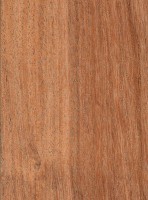 |
Common Name(s): Prosopis juliflora, Mesquite Scientific Name: Prosopis juliflora Distribution: Mexico, Central and South America Tree Size: 50-65 ft (15-20 m) tall, 4 ft (1.2 m) trunk diameter Average Dried Weight: 50 lbs/ft3 (800 kg/m3) Specific Gravity (Basic, 12% MC): .63, .80 Janka Hardness: 2,620 lbf (11,650 N) Modulus of Rupture: 16,750 lbf/in2 (115.5 MPa) Elastic Modulus: 1,759,000 lbf/in2 (12.13 GPa) Crushing Strength: 9,760 lbf/in2 (67.3 MPa) Shrinkage: Radial: 4.6%, Tangential: 8.1%, Volumetric: 12.6%, T/R Ratio: 1.8 |
Color/Appearance: Heartwood tends to be a yellowish brown to dark brown, which darkens with age. Sapwood tends to be narrow and is a pale yellow color.
Grain/Texture: Prosopis juliflora has a medium to coarse texture and a slight natural luster. Grain tends to be straight or wavy.
Endgrain: Diffuse-porous (or semi-ring-porous); medium to large pores in no specific arrangement, few to moderately numerous; solitary and radial multiples of 2-3; amber-colored deposits occasionally present; narrow to wide rays may be just barely visible without lens, normal spacing; parenchyma vasicentric, lozenge, confluent, and marginal.
Rot Resistance: Prosopis juliflora is considered durable to very durable regarding decay resistance, though it is susceptible to insect attack. Prosopis juliflora has excellent weathering properties.
Workability: Working properties are largely dictated by the quality of the wood itself. Mesquite that is clear and free from defects is easy to work with hand and machine tools, but irregular grain or knots can be challenging. Glues, turns, and finishes well.
Odor: Prosopis juliflora is said to have a fragrant odor while being worked.
Allergies/Toxicity: Woods in the Prosopis genus have been reported to cause skin irritation. See the articles Wood Allergies and Toxicity and Wood Dust Safety for more information.
Pricing/Availability:Prosopis juliflora is only occasionally available in small sizes, or as large irregular slabs, and is sometimes sold under the generic name of “mesquite.”. Larger boards free from defects are uncommon. Prices for Prosopis juliflora are in the mid range for an imported tropical hardwood.
Sustainability: This wood species is not listed in the CITES Appendices or on the IUCN Red List of Threatened Species.
Common Uses: Flooring, firewood, turned objects, cabinetry, and furniture.
Comments: Prosopis juliflora is known by a multitude of common names, though not one of them seems to be predominant (or intelligible) in the United States. A very generic term that has been applied to this species is simply “mesquite”—though in the United States, the term usually refers to Honey Mesquite.
 |
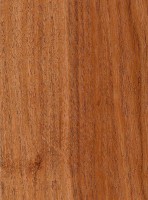 |
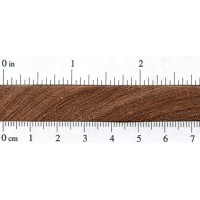 |
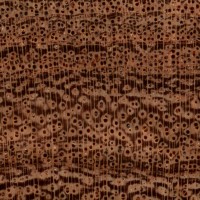 |


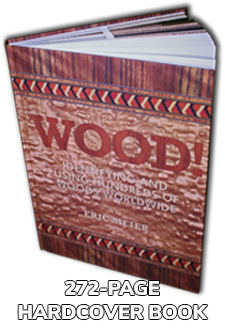
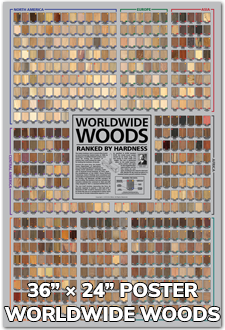
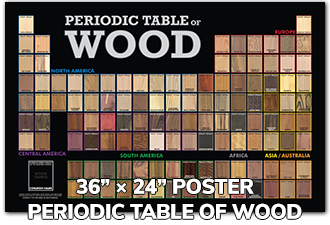
Add to the list Prosopis pallida, from South America, but widely distributed in Hawaii, where it is known as kiawe.
Very hard and heavy like its relatives (local woodworkers give its specific gravity, w/o identifying the definition used, as 0.85), with a dark reddish brown wood, more finely grained than most of its relatives. Considered invasive in Hawaii, it grows on leeward coasts from shoreline to 1000-1500ft. Sought by woodworkers for box-making, bowl-turning, and sculpture, prized by BBQ aficionados, but disliked by firefighters as its roots can keep burning invisibly underground and reignite a fire 20-40ft away.
It can potentially be a very sustainable wood source that is very durable to rot. It can grow in deserts with just a few centimeters of precipitation a year.